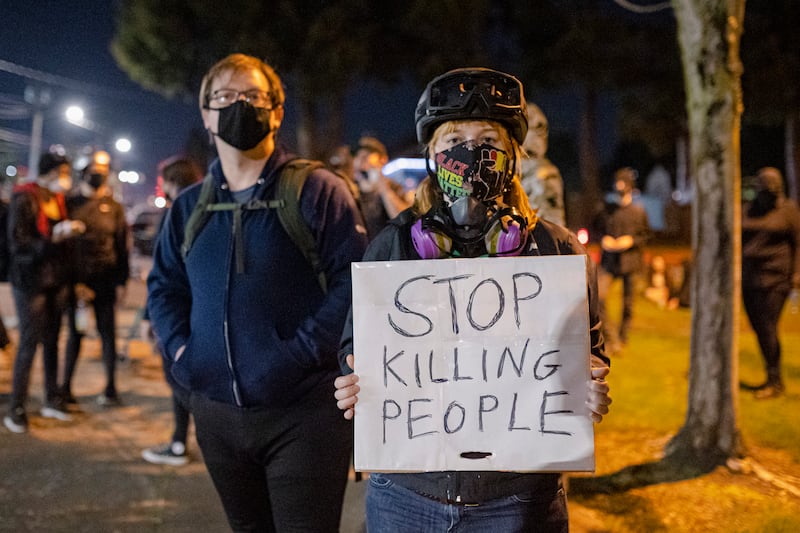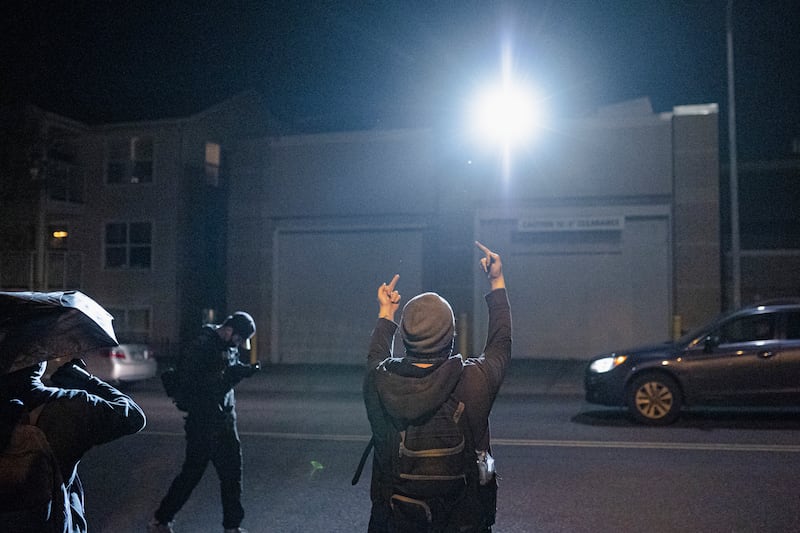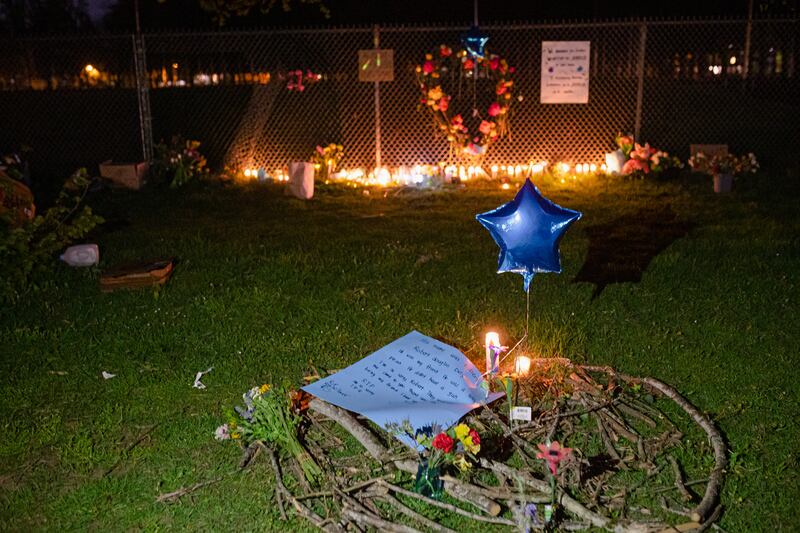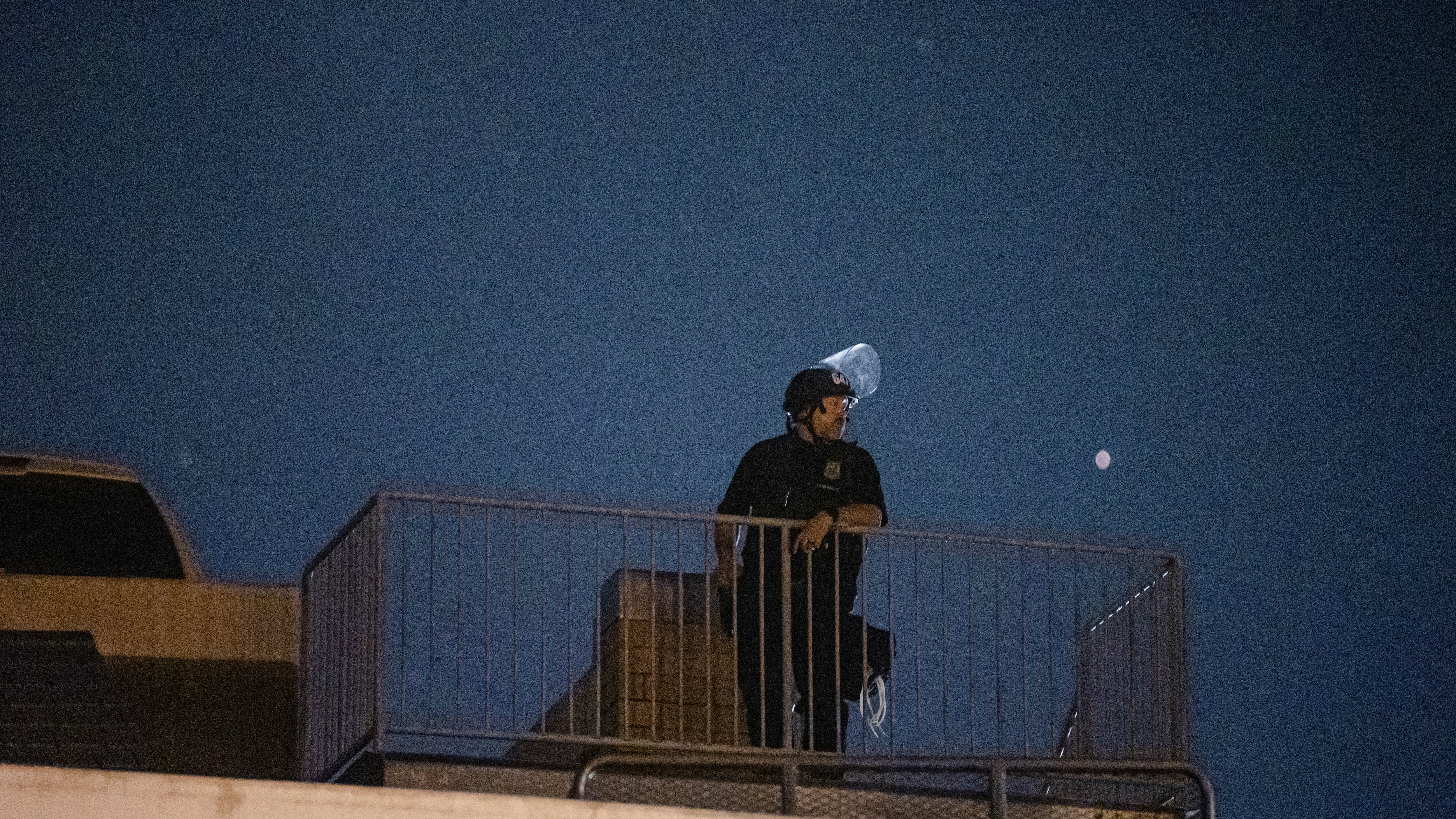As the nation awaits a verdict in the murder trial of former Minneapolis police officer Derek Chauvin, Portland finds itself in a particularly volatile spot.
A city already home to some of the nation’s most combative protests of police on Friday saw its first killing by a Portland police officer since 2019. The fatal shooting of Robert Delgado in Lents Park on April 16 sparked some of the most destructive rioting Portland has seen since last May: museum and church windows shattered, a Nike store looted of sportswear, and a construction site along a downtown tower set ablaze.
After that spree on Friday, the city grew quieter Saturday. An April 17 protest at the Portland Police Bureau’s East Precinct was sparsely attended and, by recent standards, uneventful: Even an effort to start a dumpster fire fizzled.
But more protests are scheduled for tonight and tomorrow. And closing arguments in the trial of Chauvin for killing George Floyd are scheduled for Monday. That’s created apprehension across the United States—especially in cities, like Portland, that recently saw police kill someone.
PPB spokeswoman Capt. Tina Jones says the bureau was already steeling for unrest this week.
“PPB has been planning for a while now for possible civil unrest related to the Chauvin trial’s conclusion,” Jones wrote in response to an inquiry from WW. “Our planning had been happening even prior to the recent riots and unlawful assemblies. As we have more information, we will publish a press release. As you may be aware, there is not a set date for when the verdict will come back, so everything is fluid.”

In some ways, the killing of Delgado by Officer Zachary DeLong recalled the struggles of the Portland Police Bureau long before the George Floyd protests. Delgado was homeless and mentally ill and, by several accounts, living in Portland parks and frightened of police.
In 2012, the U.S. Department of Justice found PPB engaged in a “pattern and practice” of excessive force against people with mental illness. That finding emerged after several high-profile killings; the 2006 death of James Chasse, whose ribs were crushed by officers arresting him, drew particular horror. That started nearly a decade of new training and accountability measures—some of which the bureau successfully implemented, even as the DOJ appeared to lose interest.
The city is trying to reduce interactions between the police and people in mental crisis—particularly in Lents, the neighborhood where DeLong killed Delgado. Yet the groundbreaking program designed to accomplish that goal, called Portland Street Response, has been dispatched to very few calls, as WW reported last week.
It remains to be seen whether Delgado’s killing will galvanize the public the way Floyd’s death did last summer.
Over the weekend, after the initial burst of property destruction on Friday, black bloc protesters returned to more typical events on Saturday. Their protest, which drew only a few dozen people, was aimed at the precinct where DeLong was stationed.

About 40 protesters gathered on the opposite sidewalk trading disparaging remarks with police officers observing from the parking garage of the East Precinct building.
“It’s a Saturday night! Why don’t you do something constructive?” an officer asked.
“One of you just shot a man yesterday morning, how can you come to work today?” a protester retorted.
“Well, he shouldn’t have been in the park with a gun!” the officer replied.
The small crowd erupted in anger: “A person can’t legally have a gun? What’s the deal?”
(Portland police have not yet confirmed whether Delgado indeed had a firearm, and the circumstances behind the fatal shooting remain mostly unclear, with conflicting reports.)

At about 10 pm, protesters marching from Ventura Park arrived in front of the East Precinct, swelling the black-clad ranks to about 75 strong at their peak. Protesters began moving dumpsters to block the streets. Immediately, Portland police gave their first warning of the night—adding “arson” to the list of crimes not to commit in their loudspeaker repertoire—before declaring an unlawful assembly, ordering crowds to disperse north.
Within minutes, Portland police officers arrived via riot van from the south, with a contingent of Oregon State Police troopers arriving to block the street from the east. Officers pushed protesters several blocks north, with curious neighbors watching from their front yards and terraces.
In total, the number of officers arriving to disperse the crowd numbered around 50. It was much higher ratio than normal, suggesting police don’t intend to be caught flat-footed again.
Correction: This story incorrectly stated that a police officer had not killed someone in Portland since 2019. In fact, a Gresham police officer fatally shot a man in Portland on May 31, 2020. WW regrets the error.
